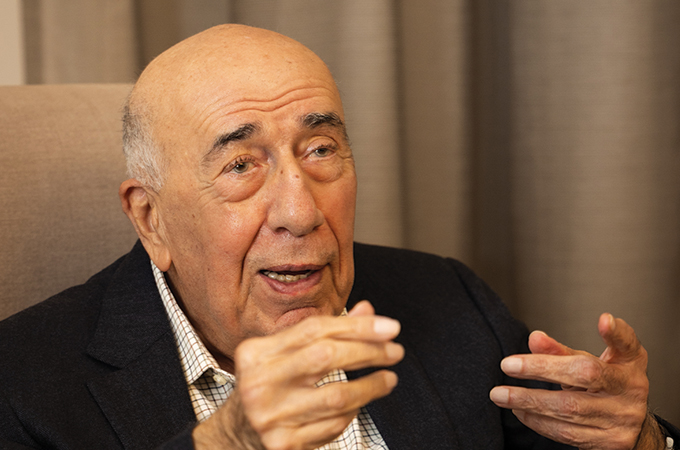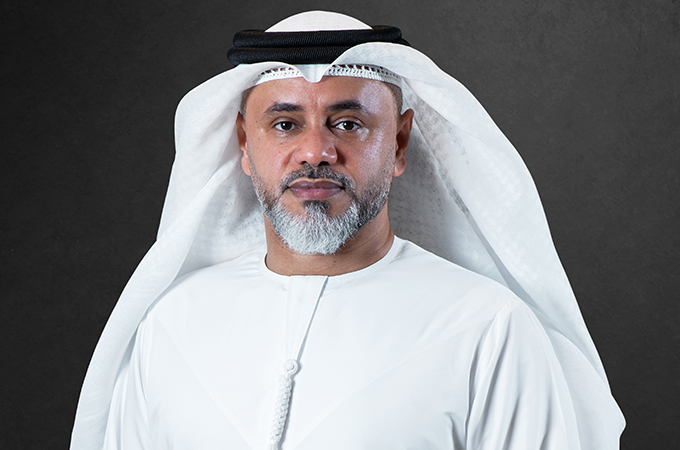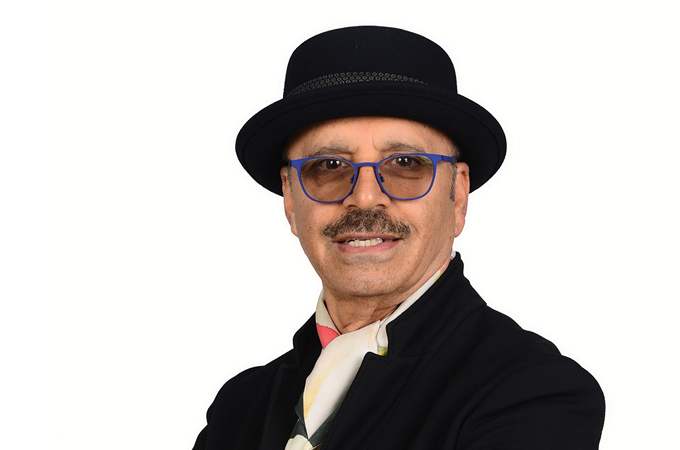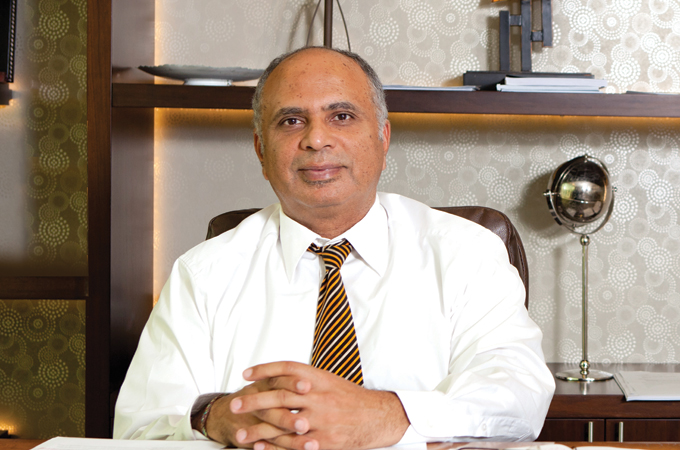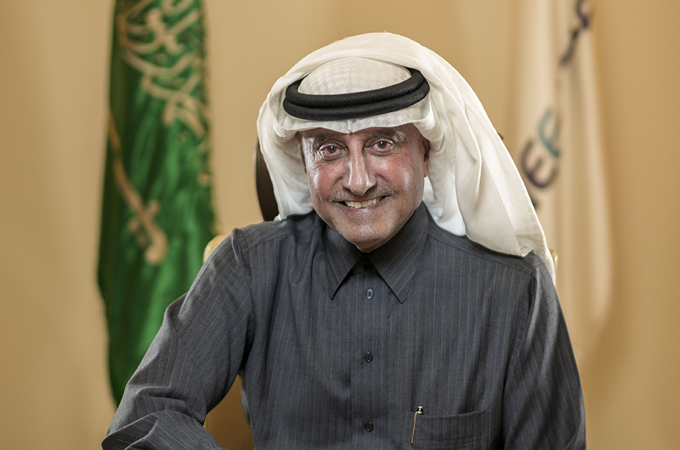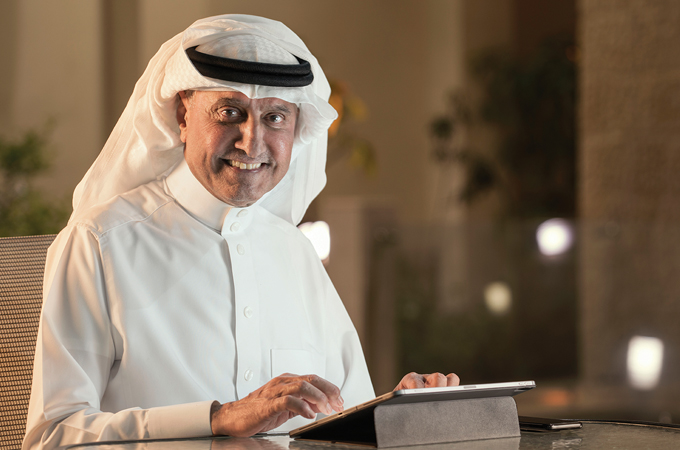Autumn 2018
Saudi business tycoon Ziad Al-Turki is driven by passion and an insatiable urge to attain excellence, be it in business or squash, a sport that he has helped reach great heights globally. He is now preparing ATCO to ride the next wave of growth
When World Number 1 Nour El Sherbini lifted the inaugural Saudi PSA Women’s Squash Masters trophy in Riyadh in January this year, history was made; a new era had begun in Saudi sports.
Squash had become the first professional sport to have a tournament for women in Saudi Arabia, providing an inspiration for a new generation of Saudis to become active in sport.
There was no happier person than Ziad Al-Turki, the global Professional Squash Association (PSA) Chairman and a Saudi business tycoon, at the venue.
For the Sultan of Squash, who was responsible for reinventing the sport globally, it was a splendid home coming indeed; a kind of déjà vu after having pioneered the sport in Saudi Arabia during the last decade.
As he gave away the trophies, Al-Turki’s memories went back to the first squash tournament he hosted in Dammam in 2005, years before the recent flurry of sports and entertainment activities in Saudi Arabia. It was one of the richest tournaments of that time and drew to the kingdom’s shores the top names in the game. That tournament launched a new star for squash who helped take the game to new heights.
Al-Turki beams with youthful enthusiasm as he speaks about squash to Arabian Knight. However, we will take you to the squash court later .
The philosophy that drives the squash in him is the same that helps push the boundaries in business for Al-Turki, the chairman of A A Turki Group of Companies (ATCO), a diversified conglomerate of nearly 25 companies. In essence, he had taken the successful experiments of business to the sport to give a new dimension to it.
With the same persistence and passion, today he is reshaping the group that was founded in the mid-1950s by his father, the late Sheikh Abdulrahman Al-Turki, preparing the conglomerate for the next wave of growth in the kingdom.
The group, through its strategic business divisions and joint ventures, offers a wide range of services and products such as automation & control, commercial trading & services, port management & marine services, retail services, waste management, chemical cleaning, industrial services, manufacturing, transportation & logistics management, oil & gas products & services, catering & food services, turnkey dewatering solutions and environmental services.
“The foundation for the ATCO Group’s success is based on the principles of excellence and integrity, with a deserved reputation for performance and commitment to our clients. We remain firmly committed to actively participating in the economic growth and advancement of the kingdom through our local manufacturing, construction, service and management activities,” said Sheikh Abdulrahman in the company’s mission statement. That vision and mission remains true for his son, the American-educated Ziad, 52, who took over the reins of the company in 2016 following the death of his illustrious father.
Ziad was born in Beirut during the family’s summer stay in the Lebanese capital, but he lived there just six weeks before shifting to Saudi Arabia. He grew up in the kingdom with four siblings – two older sisters and two younger brothers – and amid four caring uncles.
“I was my uncles’ toy. Basically, I have a little bit of all of them in me – uncles Khalid, Abdulaziz, Saleh and Abdulrazak. My father would travel for months at times and I would be with uncle AbdulAziz who got me into squash. Family has been the driving force for me,” says Ziad, recounting his childhood.
After completing his 10th grade, Ziad was sent to the South Kent School in Connecticut, US, for further studies. “At South Kent, it was a very different experience to what I was accustomed to. There was a cook and a gardener and the boys had to do everything else – ploughing snow, cleaning, etc. The room was awful, I felt I was put in a ‘hole’ and cried the first week. However, as it turned out later, it was the best three years of my life. It taught me to be independent, it really shaped the person I am,” he confides.
Though young Ziad had attended some summer schools in England and Switzerland, the experience here was quite different. “It opened my eyes in a completely different way to education. George Bartlett, the headmaster of the school, the English teacher Mrs Brown and all other teachers were a huge influence on me and everyone that went to the school. Mr Bartlett had a very strong personality and a father-like figure who shaped me and everyone that went to South Kent,” he adds.
After completing school, he joined an engineering course in Rice University, Houston. “I decided to study engineering because I enjoyed building electronics. However, the course was not for me and I did not enjoy it. Instead, I was interested in social sciences,” recalls Al-Turki.
After two years in Houston, due to an accident he had to give up the course. However, soon his interest in social sciences took him to Pepperdine University in California.
“I enjoyed studying sociology and psychology. They are really interesting topics, especially when you live in a place like Saudi Arabia where you have people from all over the world,” he continues. “I fell in love with California so much that I stayed seven years there before I came back to Saudi Arabia, that is two years after university.”
The stay in the US had a transformational impact on Ziad who had spent his childhood in a secure and protected environment in Saudi Arabia. “From Saudi Arabia to the South Kent School, it was one thing, from the school to university it was quite another transition. I went from a very closed community to a cosmopolitan university in Houston. All of it was a shock to my system.”
Young Ziad had now gained good education as well as some ‘university of life’ experience too and it was time to follow his father’s advice that he should return to the kingdom. “He told me ‘Do your thing but come back to Saudi before you are 30 and roll up your sleeves ready to work’.”
Speaking fondly about his iconic father, he recollects: “My father’s upbringing was strict, but he wasn’t strict. He set ground rules and expectations but gave us a lot of leeway. He was a father, a best friend and a brother. It was completely a different relationship than in a typical Middle Eastern family. It is the same now with my kids.”
On returning to Saudi Arabia, unlike many next-gen leaders of family businesses, Ziad did not take a seat at the board immediately. He knew it was time for him to learn the intricacies of business and test waters before he could take the leadership role.
“Not that I did not understand the business; my father raised me in the business, I lived the business, it is in my blood. However, I did not want to take a position or a title immediately. What I wanted to do was basically float around for a while, sit with managers and spend time asking questions. It actually enabled me to understand their weaknesses more than anything else,” says Al-Turki.
The two years proved right the words of wisdom he had received from a close friend of my father before he joined the group, who told Ziad: “I don’t envy you, it is easier to start a business than to work for your father. You are going to see things that you want to change and it will be difficult.”
“It was very difficult when you saw that the management was not what it was supposed to be; it was next to impossible to change these managers that have been with us forever or make them adapt to the changing times,” says Al-Turki.
The buzz word at the time was the WTO (World Trade Organisation) deal. “The key question was how are we going to face the WTO? How we will deal with the challenge of the country opening to businesses coming from outside? Can we survive?” he continues.
For Ziad, who had lived in a more technologically advanced environment, it was frustrating. “I had been using computers since 1982 and was in charge of the computer lab in high school. But in the company, everything was manual.”
It wasn’t easy to persuade his father to modernise the company, though he was a man of change. “My father had two different characters. Inside the company, he was stuck in the old ways, stuck in the 60s and 70s. Outside ATCO, when he sat on the boards of other companies, he was way ahead of his time. Because the group was his baby, getting him to get rid of the old and outdated was difficult. We were, however, able to change a few things and started modernising,” Al-Turki recalls.
Following two years of absorbing the business, Ziad first took over the company’s commercial activities and worked for ATCO Commercial, and it was not a very pleasant situation. “There was a lot of clash between me and some in the management, which worked in a complete hierarchical system. I didn’t believe in hierarchy, I still don’t believe in it. The way we work is a straight line, everybody’s input is important. In the company, everybody went to one person and he decided everything and that was the VP. The managers, who are supposed to be experts, did not take decisions. That was one of the things that I tried to change; get the right sort of management and empower people to take the decisions that they are meant to,” he says.
He was also able to bring people from the lower ranks up and create a dialogue with the staff, succeeding in his mission to change the way the group was operating.
Al-Turki has now been with the company for 23 years and his zest for creating new things has not diminished, though he admits that the day-to-day routine doesn’t interest him anymore.
“I also don’t think we, as owners, should be involved in the day-to-day affairs. We should be more on the development side. That’s what gives me the buzz – trying to close deals, trying to create new ventures and bring ATCO to greater success.”
The experienced businessman is not daunted by the recent economic downturn. “These challenges started right around the time when our father passed away. We had a lot of challenges internally; we had some legacy contracts we needed to get rid of and some joint ventures that we wanted to end. So the slowdown actually worked in our favour. We felt it is a good time for us to shrink to become bigger later. In the past couple of years, we have been focusing internally, cleaning the house and creating a corporate structure. So we have shrunk, refocused and reshaped the businesses. Also, we are going into businesses that are more in tune with the times such as recycling and environmental services,” he says, giving a broad outline of his future plans.
“Actually, two of our companies have had the best performance during the last two years,” he adds.
The company has shrunk considerably in the last few years, reducing the overheads too. The staff strength has come down from around 3,000 to 1,500- 1,800 range.
However, he vows: “My siblings and I will not forget the legacy that has been bestowed on us by our father. We do have businesses that are precious to us, as a family. We don’t care if we make money in them or not. They are our father’s legacy and those businesses we always want to continue. What is important for us is to continue the name and the legacy for the future. He always said, ‘this is not for me, this is not for you; but it is for the next generation.’ And this is the model we have adopted in our family governance.”
He adds: “As a family we are not driven by money. My involvement in squash, for example, is altruistic. My father and uncles gave so much time and effort to charity, education and welfare programmes.”
The company has interests outside of Saudi Arabia too, in the UAE, Egypt, Jordan and in Europe. “But our main focus is Saudi Arabia right now and how can we capture the next wave of growth that’s coming, which I feel is not going to be like before. Before there used to be a boom then a drop and then a boom. We will not see a boom, we will see a steady increase in growth,” says the business magnate, who has seen many ups and downs.
“People talk about the economy being slow. There is pain in the construction sector, but what about the rest of the businesses? There are opportunities, you have to think differently and not expect the government to give you something; one has to look for it. Overall, we are very optimistic,” he adds.
Al-Turki sees enormous potential for Saudi Arabia’s travel and tourism sector in the years to come. “It is not all oil and gas here; there is a lot of opportunities in other sectors too. Diving is one of my biggest passions and our west coast offers unbelievable opportunity for divers. Tourism is unexploited here and we have more to offer to tourists than anywhere else in the GCC,” he reiterates.
“We just want to leave a legacy for the future; that’s what our father instilled in us. What we are looking to do is make sure that we have a solid ground for the future and that vision keeps us going,” he concludes.



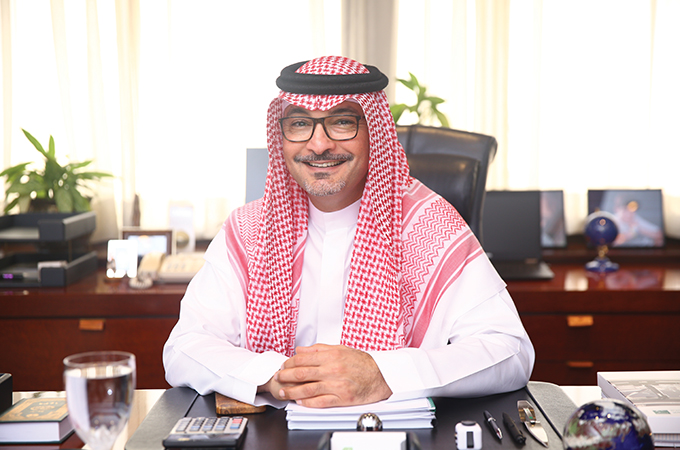








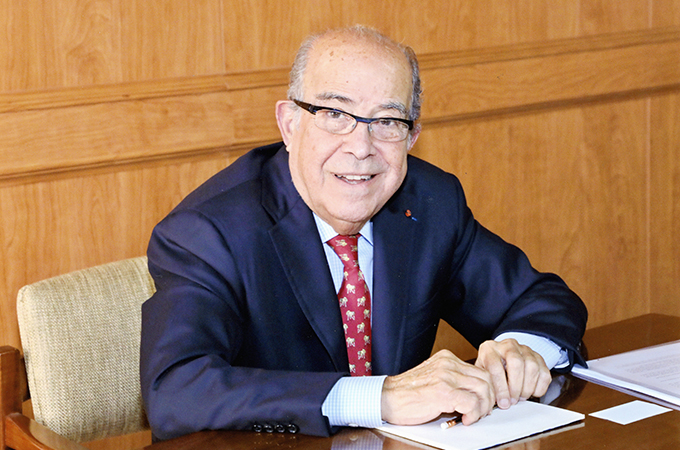
.jpg)
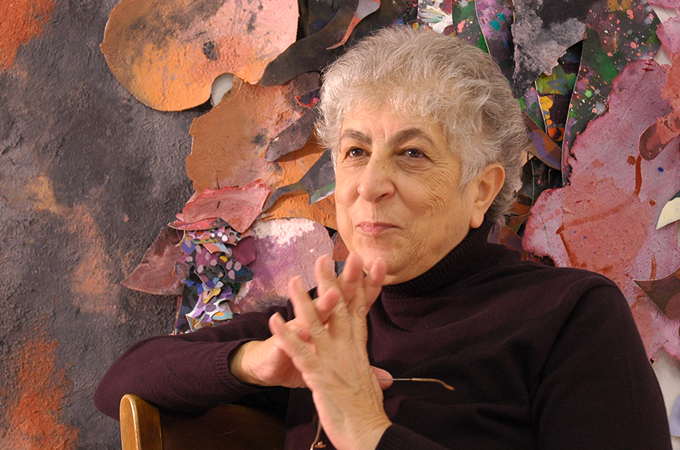
.jpg)
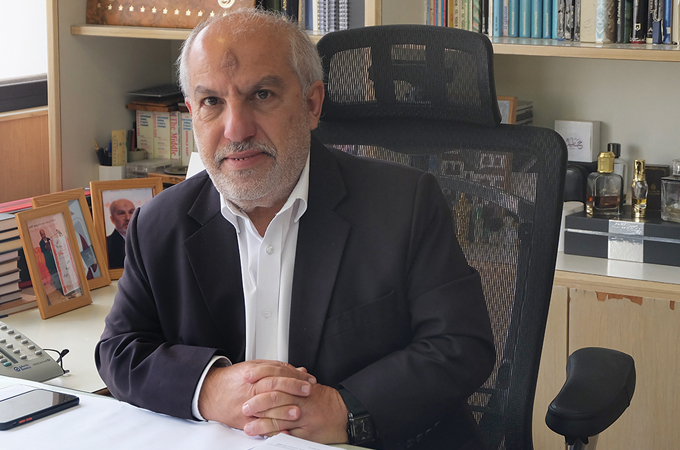
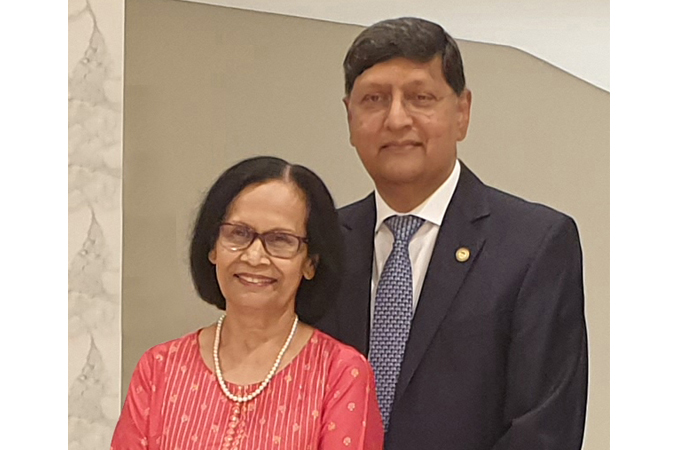
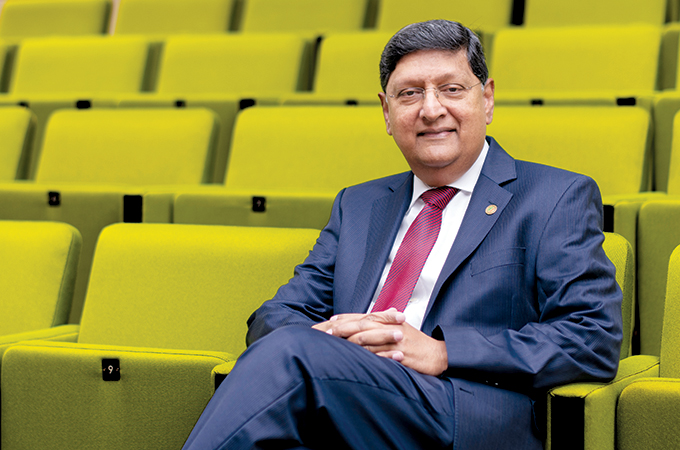
 B.jpg)
